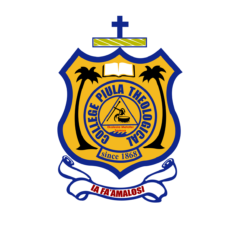Proudly powered by WordPress


Church Ministry Studies

Church History Studies

Theological Studies

BIBLICAL STUDIES
CHURCH MINISTRY
Church Ministry explores the various ways that have been utilized in the history of
church ministry, and are useful for mission and evangelization, especially relevant
for the MCS and abroad.
But a degree in Theology as a whole involves more than the study of particular
disciplines separately. It seeks to help a student integrate these together, and in his
or her person, so equipping them to be able to continue with a lifestyle of
discipline and integrity. Learning and attitude outcomes are therefore looked for,
alongside knowledge and skills, but how these are assessed or set in place is always
a complex matter.
In contrast to much university education, however, Theological Programmes inPiula is typically
set in the context of a community of learning that embracesstudents, faculty and staff, and regards study, worship, work, culture, fellowship,
reflective practice, and living as a formative whole. This holistic approach to
theological training in Piula is based on the belief that it is not only an academic
training. Experience shows that this setting does not distort academic freedom.
Rather, it fosters the (seemingly paradoxical) reality that only as students have a
sense of safety and integrative growth in the academic, moral, and spiritual
formation do they find themselves open and matured enough to explore new and
‘dangerous’ ideas openly. And since Theology is concerned with what is ultimately
real, true and good, its own commitments continue to set fairness, consistency and
openness at its heart.
CHURCH HISTORY STUDIES
THEOLOGICAL STUDIES
BIBLICAL STUDIES
Church history deals with understanding the path of the Christian faith (in a
systematic and linear approach) in its engagements through history. It maps these
engagements (of the Christian faith) in various historical periods and geographical
scenarios, and how secular circumstances affected the paths and beliefs of the
Christian faith in different parts of the world.
Theological Studies deals with the ways by which the beliefs involved in the life of
the Christian Church have been dogmatized and systemized into integrated
worldviews (‘Systematic Theology’). This study employs philosophy, and constant
interaction with alternative perspectives (including third and contextual theologies),
whether from other Christian traditions, different cultures, other faiths or
ideologies
Biblical Studies engages with the foundational texts of the Christian tradition,
comprising the Old and New Testaments, its ‘canon’ of authoritative writings
(scriptures). This includes the historical and genre analysis of the highly varied
literature involved, study (at appropriate levels) of the original Hebrew and Greek
texts, and learning a range of critical tools for their interpretation
